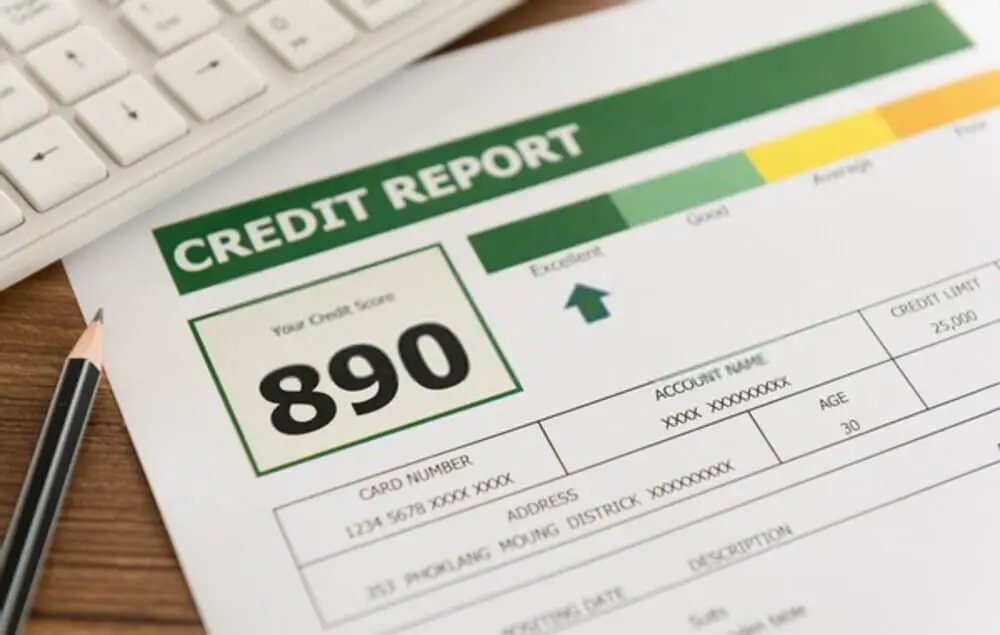When you apply for a home mortgage loan, your credit history will play a large role in determining which type of loan you qualify for. It'll also play a factor in the loan amount you'll be eligible for.
Before approving your loan, mortgage lenders will conduct a thorough review of your credit history to decide if you can reasonably afford it. Usually, they'll obtain what is known as a tri-merge credit report.
Instead of reviewing your FICO credit score, mortgage lenders will typically obtain this report to receive the full picture of your financial bandwidth.
As such, this ultimate guide will explain what a tri-merge credit report is, how mortgage lenders review it, and how you can obtain this report.
What Is a Tri-Merge Credit Report?
A tri-merge credit report is a collection of data regarding your credit history. As its name suggests, this report features your credit history from the three major credit bureaus: TransUnion, Equifax, and Experian.
By law, everyone is entitled to a free copy of their credit history through each of those main credit bureaus. Mortgage lenders can use this credit report to receive basic information about your credit history.
The tri-merge, or three-in-one, credit report simply collects all of your credit transactions for easy access to mortgage lenders. A tri-merge credit report will even provide greater detail into your FICO score.
All in all, these reports are generally only used by mortgage lenders.
Since buying a home is usually the largest financial purchase a person will make in their lifetime, mortgage lenders want to make sure that they are lending to the right people.
Other lenders, such as auto dealers, will usually just take a peek at your credit score to begin the underwriting process. For mortgage loans, obtaining this report is a formality.
Is There a Tri-Merge Credit Report Score?
The purpose of a tri-merge credit report is to combine all of your credit histories. For that reason, it doesn't feature a singular score. Thus, when mortgage lenders review this report, they'll see three different credit scores.
A majority of traditional lenders will rely on your FICO score when approving your loan. It's important to note that the credit scores listed on a tri-merge credit report may differ from what's listed on your annual report.
This is because mortgage lenders have to take more risks than other lenders. For example, a mortgage loan worth $250,000 is clearly more valuable than a $10,000 line of credit or a $30,000 vehicle.
Thus, mortgage lenders have to factor in more variables that may not appear on your traditional annual credit report.
Nonetheless, you can get a great idea of where your credit stands by requesting a credit report from TransUnion, Equifax, and Experian.
Why Do Mortgage Lenders Use This Report?
Have you noticed that your credit score from one credit bureau is different from the next? The reason why credit scores differ from one bureau to another is that reporting is optional for lenders.
For example: if you take out a loan on a new bedroom set, that lender isn't required to report that you've been making on-time payments. Even if they do, they may only report to one or two credit bureaus.
This is why your credit score can differ depending on the bureau you request your report from. A tri-merge credit score doesn't list these discrepancies.
It provides mortgage lenders with a clear picture of your credit history.
How Does This Report Affect Your Application?
Mortgage lenders will review a lot of different factors to determine if you're capable of handling a home loan.
These factors usually include:
- FICO score - The score ranging from 300-850 is a key determining factor if you'll be approved for your loan
- Credit report - A mortgage lender will also review key details in your credit report, such as your payment history
- DTI - Your debt-to-income ratio is also an important factor in determining if your income exceeds your debt
Where Do Mortgage Lenders Get This Report?
Mortgage lenders can receive a tri-merge credit report from various sources. Often, they can purchase these reports from Fannie Mae or Freddie Mac.
There are also private companies that can deliver these reports directly to mortgage lenders.
How to Get a Tri-Merge Credit Report
Unfortunately, purchasing a tri-merge credit report isn't as simple as it sounds. These reports are designed to help mortgage lenders, so private credit reporting companies often won't share them with people applying for a home loan.
The good news is that obtaining this report on your own isn't impossible. There are several private companies that will compile this data and deliver a tri-merge credit report to you.
With that said, you may be wondering what is the tri-merge credit report cost. The cost for this report can vary anywhere from $10 to $100.
How Can You Obtain This Information Without a Report?
You may find that obtaining a tri-merge credit report is easier said than done. It also may be cheaper to find another alternative. Fortunately, you can access the information found in a tri-merge credit report another way.
You can simply use a free or premium credit reporting service to monitor your credit score across the three major bureaus. You may pay more for a service that will monitor all three credit bureaus.
According to the Fair Credit Report Act, you can check your credit score across all three credit bureaus once a year for free.
If you're already in good credit standing, this may be the best option to take without damaging your credit score and paying fees.
The Bottom Line
Mortgage lenders face more scrutiny than many other lenders for the simple fact that they loan hundreds of thousands of dollars to people they don't know.
Obtaining a tri-merge credit report is a great way for them to determine if you're suitable to receive a mortgage loan.
Nowadays, you can receive a copy of this report yourself to see where you stand before applying for a mortgage loan. On the flip side, you can view your credit score from the three major credit bureaus every year for free to gain the same understanding.
If you really want to step up your game, check out the new eBook I wrote for you, Credit Repair 101. Simple instructions and illustrations will help you learn how to boost your Credit Score, and other amazing credit tips & tricks. Check out the samples on the product page.



